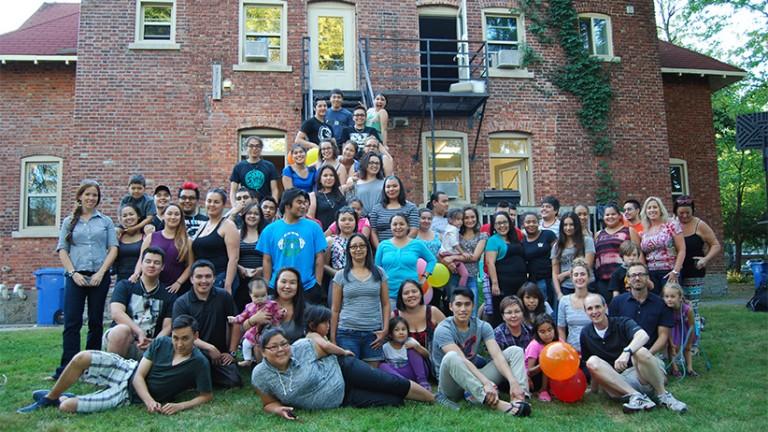John Abbott College’s new program supports Montreal’s Inuit students
A CEGEP helps deliver Nunavik’s first urban, Inuit-focused post-secondary program

Closer together: More than half of all Nunavik students studying away from home are at John Abbott
Share

In 2009, Alicia Aragutak finished high school in her hometown of Umiujaq, on the eastern shore of Hudson Bay. She was one of three students to graduate, and one of two from the remote, fly-in-only community of 400 people to study in Montreal, 1,245 km away.
Arriving in a huge metropolis “was a rather shocking experience for me, since I lived in one of the smallest towns in Nunavik,” says Aragutak, now president of the non-profit Qarjuit Youth Council. She enrolled at the English-speaking John Abbott College, a Montreal CEGEP with close to 600 students at the time, which was more people than Aragutak had ever seen.
Nunavik, the northernmost region of Quebec, is home to more than 12,000 people, the majority of them Inuit. Many young people like Aragutak, now 25, have never been away from home, let alone lived in residence at a college. But getting a post-secondary education, she explains, is expected. “I knew at that time my future would require some kind of education.”

Every year since the formation of the Kativik School Board (KSB) in 1975, Inuit students from all over Nunavik have travelled south to a CEGEP. More than half of the 100 students currently away from home for school ended up at John Abbott, which offers a two-week college preparatory program to help introduce young Inuit to life in the city. It also helps Inuit students form connections. “You get to know your classmates, but it’s not as close-knit as it is up north. So when you’re in the same environment as people who are going through the same changes as you, it’s comforting,” says Aragutak, who studied youth and adult correctional intervention. “And you feel like you’re not alone.”
Now, thanks to a $667,000 federal grant, the Kativik School Board is going a step further, introducing a one-year, general education pilot program in September 2017 called Nunavik Sivuniksavut.
READ: John Abbott College | Sainte-Anne-de-Bellevue, Quebec | Founded 1971
Education consultant James Vandenberg has been developing it for the past year, looking to the successful Nunavut Sivuniksavut program in Ottawa, which has offered training for students from Nunavut since 1985, for guidance. “[Students] learn about the history of Nunavut and the history of their own people and they realize that Inuit culture is something to be celebrated, and they are competent and capable as Inuit,” he says. “And that is the main thing that we want to try to emulate.”
The program has been in the works since 2013, after a series of grassroots meetings and town halls around Nunavik made it clear people were searching for post-secondary options. Nunavik Sivuniksavut will offer core courses students take in many CEGEPs, along with Inuit history, culture and social studies. Students can learn in English or Inuktitut, and may also take French classes. The educational model will vary, offering compressed course schedules and various class times. It’s an attempt to attract Inuit leaders who may have other jobs or aren’t able to leave the north for a full semester but can come south and join the faculty for a short time. They also hope it appeals to students and may help stem the dropout rate.
Vandenberg has worked with the KSB for more than a decade, and estimates that more than half the students who travelled south for school quit before they finish. “There [are] many reasons why a student would want to go home. Homesickness, difficulty adapting to life in the south, the heat,” he says. “Studying things that don’t touch them, that don’t reach them.”
Vandenberg hopes to finalize course options by the end of 2016. Recruitment of both staff and students will begin in January 2017, and there will be room for 20 students. The 12 courses start in August 2017, initially at the Avataq Cultural Centre in downtown Montreal.
For Aragutak, the program is a no-brainer. “You’re going to be studying what you know as Inuk youth. It’s something closer to who you really are and your identity, and what is relevant to your communities.”
[widgets_on_pages id=”Education”]